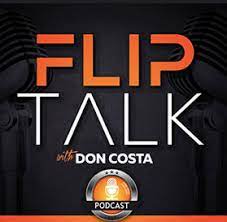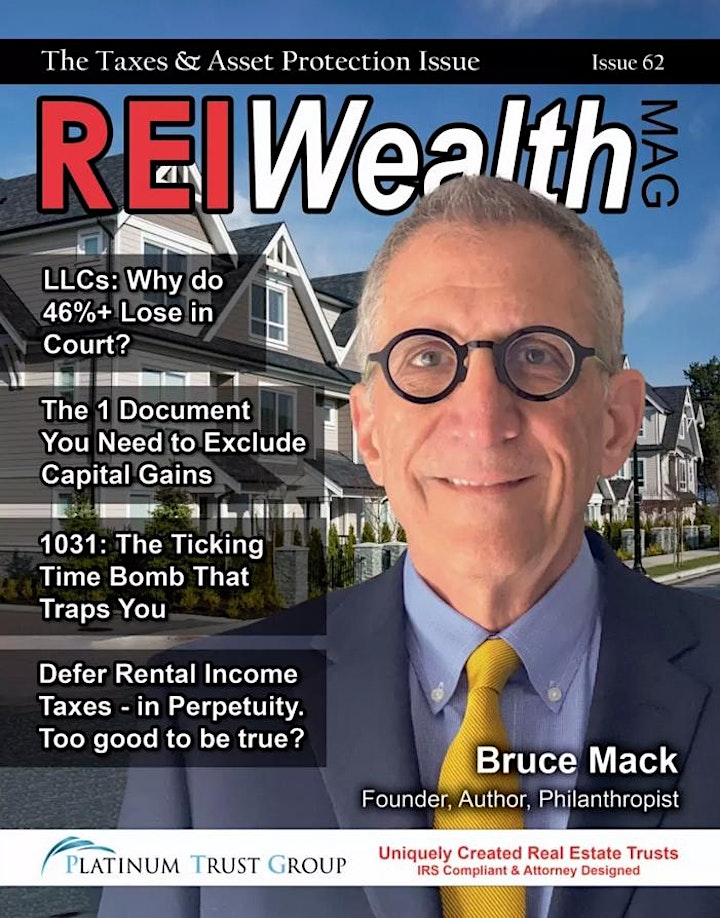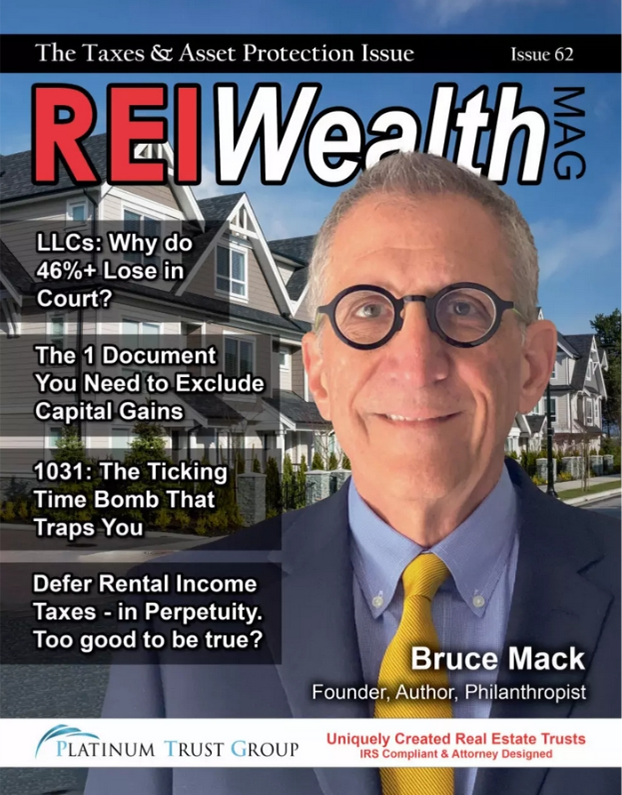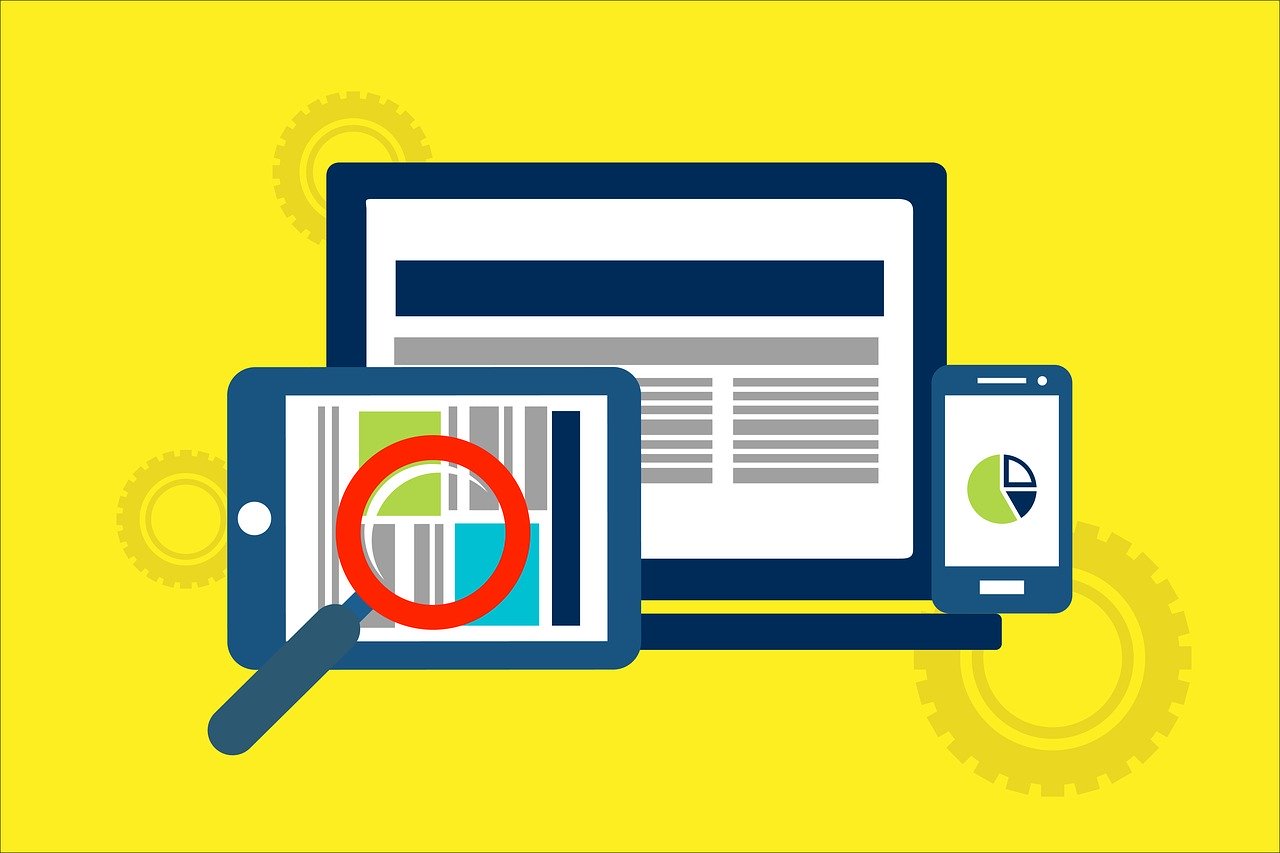Tax Deeds & Tax Lien Sales Investing – Part 2
So here is a quick recap of Part 1 – Tax Deeds & Tax Lien Sales Investing: When homeowners fail to pay real estate (property) taxes, the government has the right to sell their property in a state “tax sale”. In a Tax Lien state, homeowners have an opportunity to pay back the amount owed within a specific time frame even after their property has been “sold” with interest to a real estate investor. Should homeowners miss the payment deadline, the investor becomes owner of the property at a great discount. In a Tax Deed state, investors bid for immediate ownership of a property or are eligible for the deed and ownership of the property after a redemption period passes. In Part 1 – Tax Deeds & Tax Lien Sales Investing I covered the descriptions of the different investing strategies as well as the rewards and the risks investing in tax liens vs. tax deeds.
Tax Deed Investing Process For Real Estate Investors
Now I am going to cover some of the steps you will need to go through as you go through the entire tax deed process and come out a winner with your real estate investment.
Obtain and Review a List
Obtaining a list of the properties that a county is going to auction at the next tax deed sale is the first thing you need to do. You should first of all find a website for the county and see if they have or will publish a list of their tax deed sales on their website.
Sometimes the county will send you a list two weeks prior to the auction for a minimal fee. You will also want to know how often they update the list prior to the auction. If it is possible to obtain this information in person and meet the people at the county office, it is better than by phone. The more people you personally know and the more questions you ask the better off you will be when you really may need help.
Once you obtain a list, they are usually fairly limited on the information they give about the property. Usually it lists Parcel number, name of owner, address of owner or property sometime both, amount of taxes owing.
You will also want to find out:
- Date of next auction?
- When and how do they publish the list and how you may obtain a copy? (Often they are required by state law to publish the list in a local newspaper by a certain date. Usually newspaper will have a copy or it is available online.)
- What is the actual auction and bidding format?
- Do they require bidders to register before the auction?
- What is the registration process for bidders?
- How your tax deed will be paid for at the end of the auction?
- How the auction is conducted and rules about bidding?
article continues after advertisement
Initial List Screening
Most lists will have more properties than you can possibly research. You need to screen the list for the types of properties that you are interested in. Usually there is a code number, the county staff can explain to you, that indicates if a property is a single family home, a developed lot, commercial, residential, duplex, apartment, etc. This is the first step in screening the kind of properties that you have decided you are interested in.
Second is to find the properties that are in the part of the town you may have determined you are interested in.
Third you can screen by the value of the property and the amount you are willing to bid.
Most of this initial screening can be done from a basic list.
Additional information that you want to obtain about the property include what type of improvements are on the property i.e. building, utilities, landscaping, curb and gutters, etc. or is it just land. Also find out the assessor value for both the land and improvements. Take note of the taxes due and when they were last paid. If there is a house or any type of building on the property find out the size, year built, number and type or rooms and if possible find about any other special features the structure may have. Learn additional information about the neighborhood by looking at the houses next door or across the street and maybe even talking to neighbors.
With all of the above information you can narrow your list down to the few properties that you need to drive buy and check out.
Visit the Property
If at all possible, a personal visit to the property is essential. If you can’t do that, a visit via the internet, through different search sites is the next best thing. However nothing tells the whole truth better than visiting the property. What seems like a very nice house could turn out to be next to a crack house or a busy grocery store or on a very busy street. What sounds like a normal building lot may have a beautiful view. You need to screen your list down to a number of properties that you can take the time to go see, especially with tax deed sales.
To save time and money you need to organize on a map your drive-bys so that you can find and record information about the properties in a timely manner. There are many mapping programs available on the internet that you can put the address in, and they will automatically give you a route. When you drive by, the number one thing is to take a picture of the property for your files. You want to write down identifying features found in the picture in case you get them mixed up. You want to rate the house, note any problems and repairs that are needed and rate the neighborhood. Usually unless the property is vacant you should not approach the house or talk to anyone about it.
Some quick things to take note of are as follows:
- Paint and roof condition
- Broken windows, doors, cement
- Underground or overhead utilities
- Trees, shrubs, general landscaping
- Condition of adjacent properties
- Property accessibility
- Discolored soil or dead vegetation
- Traffic on the street
- House vacant, lived in, for sale sign
Make sure to drive around the area looking for any industry or business that would distract from the desirability of the property. Also look for similar properties in the neighborhood that may be for sale and call the owner or real estate agent to find out the price and condition as a comparison for properties value. You can print out this checklist on a spreadsheet that you can fill out while you are in the neighborhood and attach the picture of the property too.
Once you have accomplished all of this research, you are now ready to narrow your list, to the final properties that you will bid for at the tax deed auction.
Check for Recorded Problems
Now is the time to return to the county offices. Go to the county clerk’s office to check if there are any liens on the few properties you now have on your list. Some counties make this process very easy by having the information available online once you have the parcel numbers and address of the property. If there are liens on the property make sure you get the name and contact information on the business of person placing the liens. You need to also check for mandatory deed restrictions on the property. In other words, find out what you can or can’t do or build on the property. You should also check for any government assessment that may be filed against the property.
article continues after advertisement
The last thing you need to check, as close to the actual auction as possible, is to see if there were any last-minute redemptions by homeowners that would have removed the property from the auction table. One of the most frustrating things about tax deed auctions is the fact that many people don’t want to lose their property and will somehow pay their taxes at the very last moment.
It is not uncommon for a tax deed sale to have 40 to 50 percent of the properties redeem at the last minute. We therefore recommend that you research twice as many properties as you think you can afford to buy because half of them may be redeemed the last day or hour before the auction takes place.
Attend the Auction
The basic work is now over the fun and hopefully reward begins. Go to the auction with a very specific plan and stick to your plan.
Usually, you should arrive about 30 minutes before the auction begins, so that you can register, check the final list that will be there for any last-minute redemptions of your properties, find a good seat where you can see what is happening and review the written or oral instructions that will be given. You may be surprised that there will probably be many people at the auction. Only half of them will actually bid while the rest of the people just come to watch.
There are many types of people at the auction who you will be able to quickly identify. The professional investors who have deep pockets and usually win whatever bid they participate in. The local investors who know the area and the properties around their home or offices and understand value, they are important to watch. The beginners who have no idea what is going on and of course YOU. At this point just smile, stick to your plan and bid amounts. Do not get emotionally involved with the bidding.
Purchasing and Maintaining Your Deed
If you are a successful bidder on a deed, you will need to be prepared to pay the full bid amount plus any fees and outstanding taxes. In some state or counties, you will only be required to pay a deposit of perhaps 10% with the balance due in 30 days. You need to make sure that you have talked with the county official before the sale and know what the payment policy and procedures are if you are successful in obtaining a deed.
In some counties, the owner can still redeem the property within a year after the deed sale. Most states and counties, of course, recommend that no major expenditure and improvement be done during this waiting period in case the sale is over turned. However, this does not prevent you from using the property, renting the property, leasing the property with an option to buy, or using the property for financing purposes.
It is always best to consult with a local real estate attorney about any legal strategies you may have prior to final settlement. Whatever you do make sure that you place liability and fire insurance on the property as soon as the auction is complete. If something happens you will be liable and no one will overturn the sale at that time.
Selling the Property
Now it is up to you, your family, and your real estate agent as to how you profit from this real estate investment adventure once you have the finalized deed. The bottom line is profits no matter what strategy you follow. This concludes my article on Investing in Tax Deeds and Tax Lien Sales from a real estate investor’s prospective.
Tamera Aragon
Tamera Aragon is a professional online entrepreneur and has bought and sold over 300 properties, establishing her as an expert in the real estate investing field. Since 2003, she has purchased over 10 million dollars in real estate and currently holds properties all over the world. Tamera’s focus is on the booming Foreclosure market, buying Pre-foreclosures, REOs and Short Sales. Tamera who is a noted Author, Success Trainer, Speaker & Coach, shows her passion for helping others with the 17 websites she has created and several specialized products to support fellow investors throughout the world. When Tamara is not busy running her website, she is very involved with her Fiji joint ventures and investments. Tamera Aragon is one of the few trainers and coaches who is really “doing it” successfully in today’s market. Tamera’s experience has earned her a solid reputation in the industry as well as the respect and friendship of many of the top national real estate investment and internet marketing experts. Tamera Aragon believes her success has garnered her the financial freedom to fully enjoy her marriage and spend quality time with her children.
Learn live and in real-time with Realty411. Be sure to register for our next virtual and in-person events. For all the details, please visit Realty411Expo.com or our Eventbrite landing page, CLICK HERE.






































 Tony Watson
Tony Watson John F. Duston IV, CPA
John F. Duston IV, CPA











